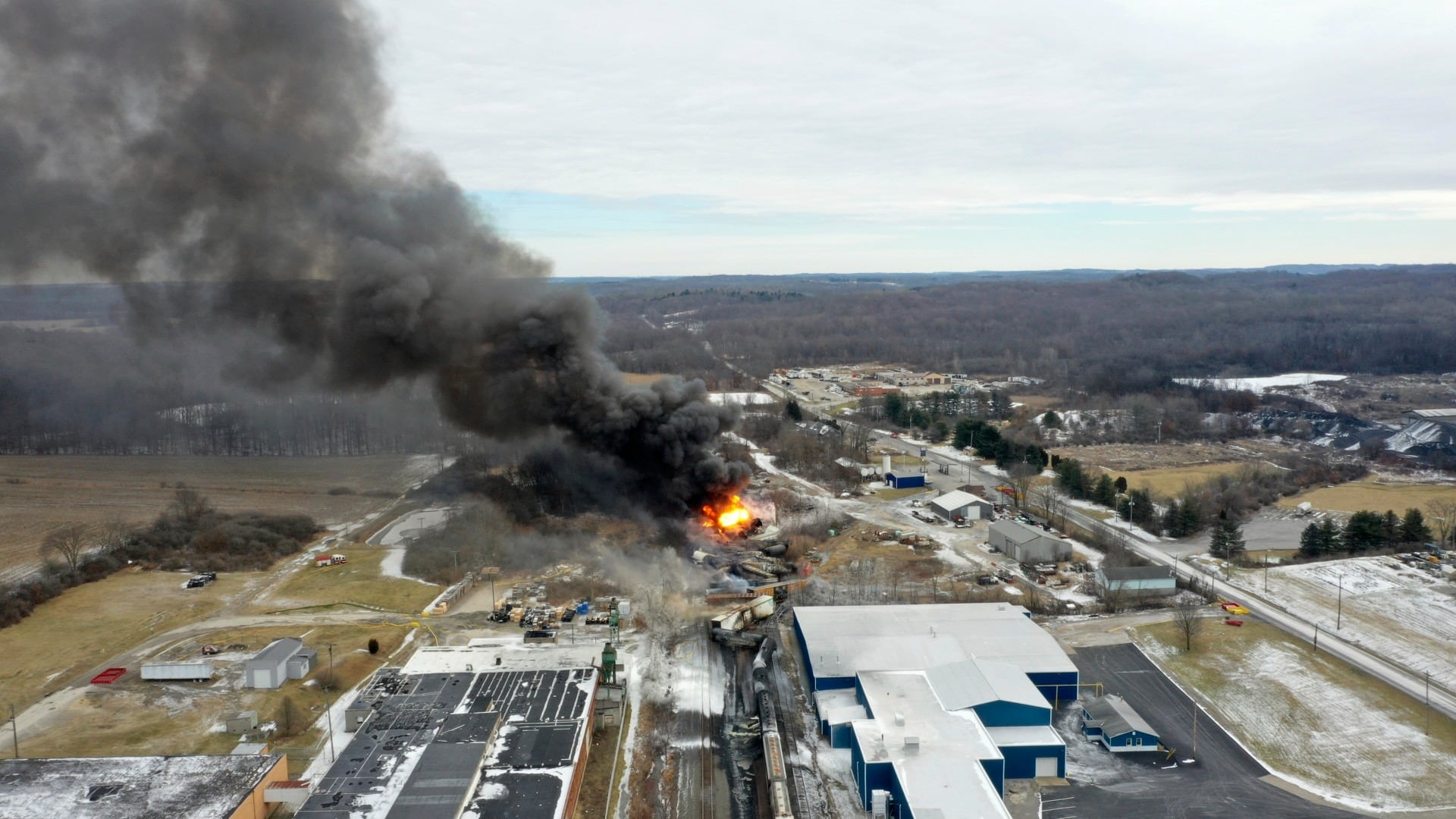The fallout from the Norfolk Southern train derailment in Ohio now includes almost 44,000 animals potentially killed due to the chemical spill and burnoff, according to the Ohio Department of Natural Resources.
The state agency estimated that more than 38,000 minnows died with 5,500 additional species of fish, amphibians, and crayfish also possibly impacted by the toxic spill. None of the dead animals listed were endangered species.
Officials first calculated that about 3,500 animals were killed following the incident.
The agency also said the threat to aquatic wildlife, in particular, was highest during the first 24 hours following the derailment and currently there is no immediate threat to water-dwelling animals.
"Because the chemicals were contained, we haven't seen any additional signs of aquatic life suffering. In fact, we have seen fish return to Leslie Run," said Mary Mertz, the director of the Ohio Department of Natural Resources, in the statement.
Earlier in February, the Environmental Protection Agency identified at least five substances that potentially could have leaked into the local ecosystem: vinyl chloride, butyl acrylate, ethylhexyl acrylate, ethylene glycol monobutyl ether, and isobutylene.
The agency tasked Norfolk Southern to come up with a viable cleanup plan. "The Norfolk Southern train derailment has upended the lives of East Palestine families, and EPA’s order will ensure the company is held accountable for jeopardizing the health and safety of this community," said EPA Administrator Michael S. Regan.













